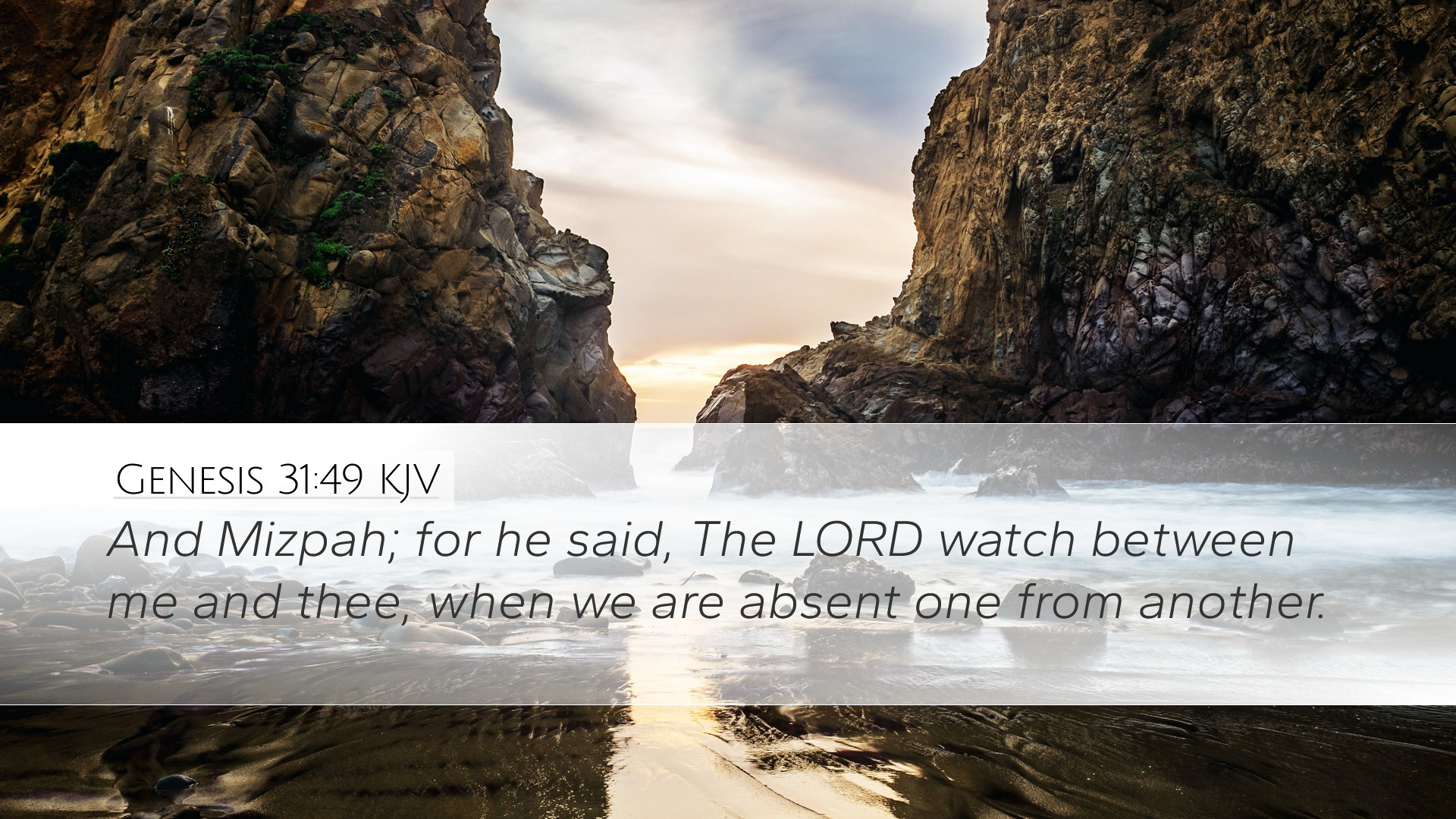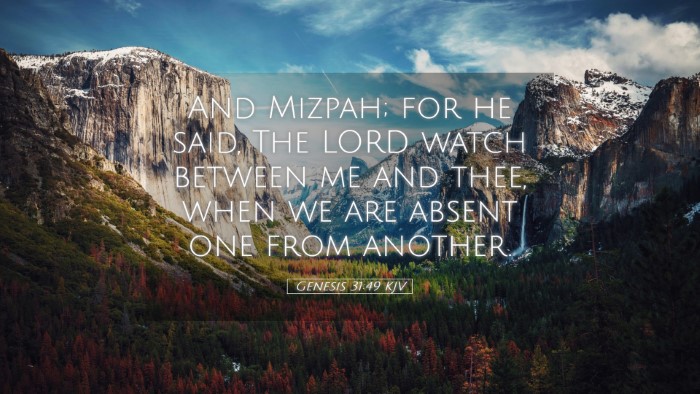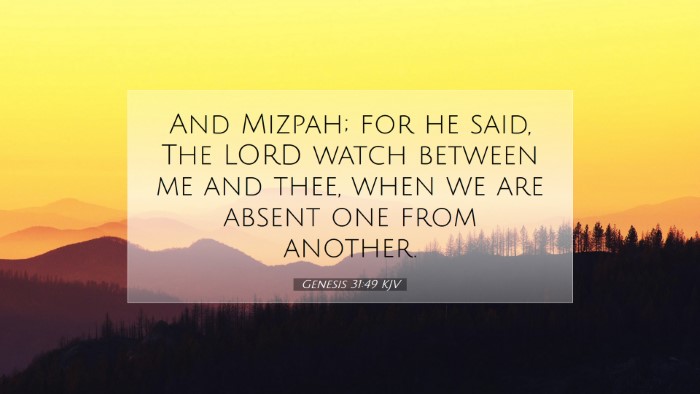Bible Commentary on Genesis 31:49
The verse Genesis 31:49 reads: “And Mizpah; for he said, The Lord watch between me and thee, when we are absent one from another.” This short but profound verse occurs at a critical juncture between Jacob and Laban, marking the end of their contentious relationship and the beginning of Jacob’s new chapter. Multiple layers of meaning can be drawn from this text, and several public domain commentaries provide illuminating insights.
Contextual Background
In interpreting this verse, it is necessary to consider the preceding events of Genesis 31. Jacob, having endured years of labor under Laban, was fleeing with his family. Laban pursued him, leading to their confrontation. This setting of tension and resolution reveals significant themes of covenant, divine oversight, and the human experience in seeking peace.
The Significance of Mizpah
Mizpah, which translates to "watchtower," becomes the geographical and thematic focal point of their covenant. The place serves as a monument to the pledge made between Jacob and Laban. As Albert Barnes notes, the name encapsulates the idea that God’s watchful eye is ever present over the affairs of men: “The Lord watch between me and thee.”
-
Divine Surveillance:
The phrase “The Lord watch between me and thee” suggests an acknowledgment of divine oversight in the relationship. Adam Clarke emphasizes that this is not merely a wish but a prayer that the Lord would act as a witness to their covenant. It reinforces an understanding that God is involved in human interactions, ensuring fairness and accountability.
-
Human Responsibility:
Matthew Henry reflects on the implications of this mutual watchfulness, noting that while God is the overseer, there is a human obligation to behave justly towards one another. The acknowledgment of God’s omniscience serves to remind both parties that their actions are observed and evaluated by a higher authority.
-
Symbol of Peace:
This covenant and the establishment of Mizpah capture the resolution of conflict and the desire for peace. Clarke elaborates that it symbolizes a boundary that Laban must not breach, and a safe distance that Jacob must maintain, thereby illustrating the importance of maintaining appropriate relational boundaries while honoring God in the process.
Theological Themes
Genesis 31:49 encompasses several theological themes that are deeply relevant to contemporary readers, particularly pastors, students, and theologians.
-
Covenant and Commitment:
Covenants signify a profound commitment; Jacob’s actions signify not just a protocol for peaceful interaction but a heartfelt promise before God. Barnes highlights how covenants are serious commitments that must be honored, not merely formalities.
-
Divine Presence in Relations:
The acknowledgment of God as a witness signifies that God is not distant but intimately involved in human affairs. Henry notes that this assumption of a divine mediator is foundational for understanding the nature of justice and mercy within relationships.
-
Hope and Future Trust:
Implicit in the hope of divine oversight is the anticipation of God’s continued guidance. The invocation for the Lord to watch reflects trust in God's character as a protector and provider. This underscores a trusting approach to new beginnings, a message that resonates for those beginning new ministries, relationships, or life paths.
Practical Applications
For pastors and scholars, Genesis 31:49 can be a source of practical lessons in the realm of ministry and interpersonal relationships.
-
Conflict Resolution:
Understanding the grace of boundaries: Just as Jacob and Laban establish a boundary, pastors should recognize the importance of setting healthy boundaries to foster peace and prevent strife within their congregations.
-
Interpersonal Accountability:
The role of accountability in ministry: The awareness of God's watchful presence creates an atmosphere of accountability, encouraging ministers to act in ways that honor God and family alike.
-
Covenantal Relationships:
Building trust within communities: Emphasizing the notion of covenant within church communities promotes collective trust and encourages mutual respect and love.
Conclusion
Genesis 31:49 encapsulates a significant moment of transition for Jacob, providing a reminder of God's faithfulness and vigilance in our lives. The invocation of the Lord's watchful eye underscores the necessity for integrity and divine oversight in our relationships. As we reflect on this passage, may it encourage deeper commitments to God and to one another, reinforcing that though we may face conflict, with God's guidance, peace is possible.


